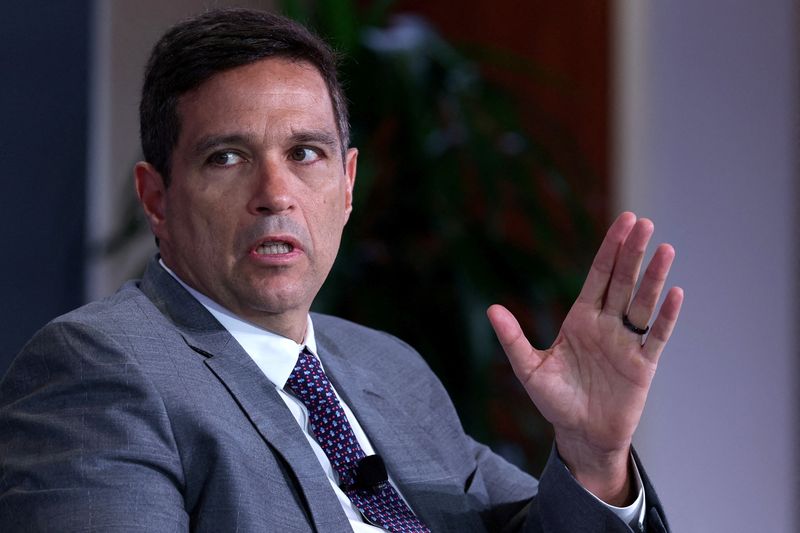Investing.com’s stocks of the week
By Marcela Ayres
BRASILIA (Reuters) - The Brazilian real has recently experienced "accelerated" weakening, but central bank chief Roberto Campos Neto said on Tuesday that policymakers did not intervene in the foreign exchange market as no dysfunctions were observed.
Speaking at a congressional hearing, Campos Neto said specific Brazil-related factors caused this greater depreciation, amid heightened risk perceptions.
The currency of Latin America's largest economy has weakened by nearly 12% against the U.S. dollar this year, though it has shown some relief since last week amid the central bank's firm messaging that an interest rate hike is on the table to battle inflation.
Campos Neto said the central bank's disinflation process has minimally impacted economic activity, which has consistently surprised on the upside.
But he warned that "perseverance" is still needed, as disinflation has slowed and inflation expectations have drifted away from the official 3% target.
Asked about the central bank's lack of intervention in the exchange rate market, Campos Neto said the currency floats to absorb shocks and avoid impacts on relative prices that could lead to resource misallocation in the economy.
"In these times of stress, we discuss all the time whether interventions should be made," he said, adding this is a collective decision at the monetary authority.
"The central bank has large foreign exchange reserves and will intervene if necessary."
Campos Neto added that the central bank's monetary policy director, Gabriel Galipolo, is responsible for overseeing the foreign exchange market and was appointed to the role by the government.
Galipolo is widely seen as the leading candidate to head the central bank after Campos Neto's term expires at the end of this year.
To lawmakers, Campos Neto also emphasized that the central bank only intervenes in the exchange rate when it identifies dysfunction in the market, which has not been observed recently.
